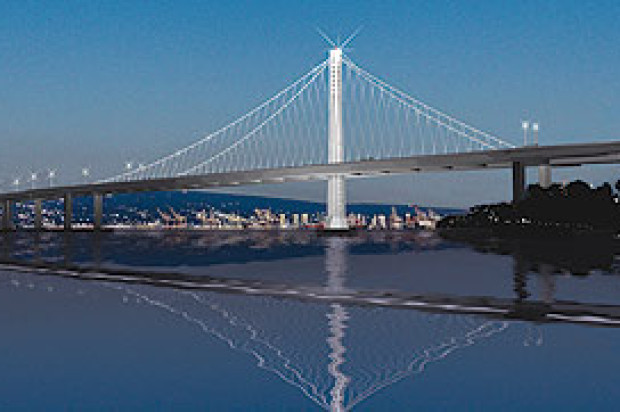
Metropolitan Transportation Commission Chairman Steve Heminger said today that test results showing that most steel rods on the new eastern span of the Bay Bridge are safe are “very good news.”
However, Heminger said more testing needs to be completed before it can be concluded that most of the rods, which secure earthquake shock absorbers to the deck of the eastern span, don’t need to be replaced.
In March 2013, about one-third of the initial batch of 96 bolts that secure the shock absorbers to the deck failed when they were tightened.
Caltrans figured out a temporary solution that allowed the new eastern span to open on schedule last Labor Day and completed a permanent fix in December.
Heminger’s remarks about the rods on the new eastern span came after engineers briefed the Metropolitan Transportation Commission’s Toll Bridge Program Oversight Committee, which oversees Bay Bridge construction, about tests of about 2,600 bolts on the new eastern span.
Brian Maroney, Caltrans’ chief engineer, said there is no “clear evidence” from the tests that other rods could fail like the group that snapped last year, which he described as “inferior.”
Engineer Marwan Nader of T.Y. Lin International, which designed the new eastern span, said, “We’ve determined that these rods are safe.”
Heminger said he interprets the test results so far as meaning, “You don’t do anything new, steady as she goes.”
But Heminger said the situation still needs to be monitored closely and it’s still too soon to rule out the possibility that some of the rods will have to be replaced in the future.
The panel, which consists of Heminger and the heads of Caltrans and the California Transportation Commission, also agreed today to pay $3 million to fix several mistakes with the new eastern span, including rust-stained paint, misaligned rods and malfunctioning scaffolds.
The work, which will be performed by the span’s main contractor, the joint venture American Bridge/Fluor, is expected to be completed by the end of the year.
In addition, the oversight committee voted to spend $1.7 million to protect birds that nest at the new eastern span.
Jeff Shuttleworth, Bay City News









